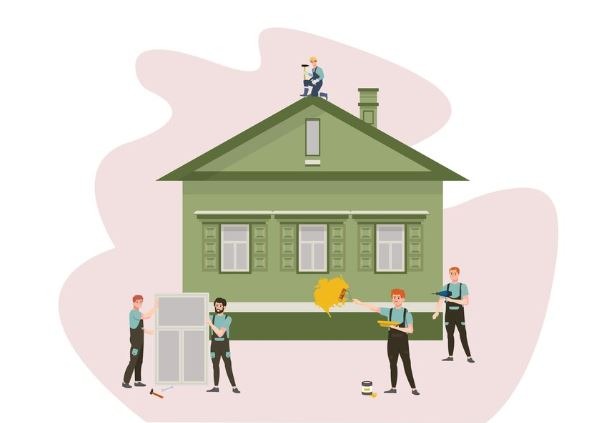You’ve decided to sell your home. Naturally, you want it to look its best to attract potential home buyers. However, you might wonder what improvements or repairs are necessary before selling your home. The truth is this: not everything needs to be fixed, and some issues won’t significantly impact the final selling price. See which aspects of your home don’t need fixing and how to prioritize what to do here.
Understanding Home Buyers’ Preferences
Home buyers come in all shapes and sizes, with different preferences and priorities. Some may be looking for a move-in ready home, while others might be more interested in a fixer-upper and see potential in making improvements themselves. The key is to understand your target market and cater to their needs.
Keep in mind that most home buyers are willing to overlook minor imperfections, especially if the house’s overall condition is good. Your goal should be to make your home as appealing as possible to the largest number of potential buyers without overspending on unnecessary improvements.
Cosmetic vs. Structural Issues in a Home
When determining what needs fixing in your home, it’s essential to differentiate between cosmetic and structural issues. Cosmetic issues affect the appearance of your home but do not impact its functionality or safety. Structural problems, on the other hand, can compromise the integrity of your home and lead to long-term damage if not addressed.
While cosmetic issues can be important in creating a good first impression, they are generally less critical than structural problems. In most cases, serious structural issues should be addressed before listing your home, whereas cosmetic issues can often be left as-is, depending on the preferences of your target market.
Minor Imperfections That Don’t Need Fixing
Small Cosmetic Flaws
Small cosmetic flaws, such as minor paint chips, scuffed baseboards, or outdated light fixtures, typically don’t need fixing before selling your home. Most buyers understand that no home is perfect and will overlook these minor issues. Spending time and money on fixing small cosmetic problems might not result in a higher selling price, so it’s best to focus on more significant improvements that can substantially impact your home’s value.
Outdated Décor
While presenting a clean, decluttered home is essential, you don’t need to worry about updating your home’s décor to match current trends. Buyers have different tastes, and what’s trendy today might not be in style tomorrow. Instead of investing in new furniture or decorations, ensure your home is well-maintained and clean. Let the buyers envision how they can decorate the space according to their preferences.
Minor Landscaping Issues
When it comes to your home’s exterior, curb appeal is crucial. However, you don’t need to invest in a complete landscaping overhaul. Instead, focus on tidying up your yard by mowing the lawn, trimming overgrown bushes, and removing debris. The new homeowners can easily address small landscaping issues like patchy grass or a lack of flower beds, so don’t stress about making everything perfect.
Major Issues That Should Be Addressed
Foundation Problems
Foundation problems are a major red flag for home buyers. If your home has foundation issues, addressing them before listing your property is essential. Not only can foundation problems lead to long-term damage, but they can also significantly decrease your home’s value. Consult with a professional to determine the extent of the problem and the best course of action for repair.
Roof Damage
A damaged roof can lead to water damage, mold, and other costly problems. If your roof is in poor condition, it’s in your best interest to repair or replace it before selling your home. A new or well-maintained roof is a significant selling point, and buyers will appreciate knowing they won’t have to deal with roof issues anytime soon.
Plumbing or Electrical Issues
Plumbing and electrical issues can cause significant damage to your home and pose safety hazards. Before listing your property, ensure your home’s plumbing and electrical systems are in good working order. If necessary, consult with professionals to address any problems. Fixing these issues will increase your home’s value and provide peace of mind for potential buyers.
When to Consider Selling “As-Is”
Sometimes, selling your home “as-is” might make sense without making any significant repairs or improvements. This option can be appealing if you’re in a hurry to sell, don’t have the funds for major repairs, or if the local market is particularly hot. However, remember that selling “as-is” might result in a lower selling price, and you may have a smaller pool of interested buyers. Before choosing this route, weigh the pros and cons and consult a real estate professional for guidance. They can help you determine the best action based on your home’s condition and the local market.
When preparing your home for sale, it’s important to prioritize the improvements and repairs that will significantly impact your home’s value. Focus on addressing major structural issues and creating a clean, well-maintained living space. Don’t stress about minor cosmetic flaws or outdated décor – most home buyers can look past these imperfections and see the potential in your home. By understanding the preferences of your target market and concentrating on what matters most, you can confidently sell your home, knowing you’ve made the right decisions in preparing it for the market.
